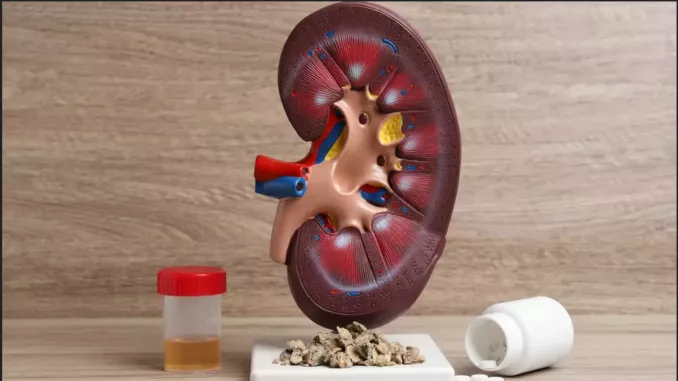![Health benefits of ponmo [ebipreye/youtube] Health benefits of ponmo [ebipreye/youtube]](https://static.netnaija.com/i/voKd6eLJarx.webp)
Is it true that ponmo has no nutritional value?
Ponmo, a popular and extensively eaten indigenous dish in West Africa and other places where Africans reside, is also known as "Kanda" in Hausa and "Welle" in Ghana.
It's a tasty portion of beef that goes well with soups, stews, veggies, and sauces. It is sold on the street as a finger food and snack, especially in beer parlours where it is drunk with beer and other beverages.
However, ponmo has its many health dangers and benefits:
1. Faecal contamination
A 2024 study in Science Direct found that ponmo and the water used for soaking had the highest bacterial count, suggesting that vendors should change the water regularly.
The presence of E. coli suggests potential faecal contamination. This can cause food poisoning, typhoid, and other serious health challenges.
2. Contamination with animal diseases
Cows hygiene is neglected and often results in infections and skin conditions like mastitis. Most of the animals reared by local herders die as a result of dangerous antibiotics that are injected into them in place of appropriate care.
Ponmo is therefore unsafe to eat because of the chemicals and skin conditions. According to health experts, cooking and cleaning thoroughly might not be sufficient to get rid of pollutants or kill microorganisms.
2. Exposure to pathogens and harmful chemicals
Melting cow hair exposes it to harmful substances like metals, tires, and engine oil, contaminating the air.
Some vendors burn cowskin, while others chemically soak it for thicker meat. Foodborne infections have been linked to dried food outbreaks and recalls.
In 2019, the National Agency for Food and Drug Administration and Control (NAFDAC) warned against eating animal skin due to potential chemical contamination. In February 2022, the agency became concerned about the spread of tainted ponmo in Lagos, Nigeria.
Health benefits of eating ponmo
1. Smooth skin
Ponmo contains collagen, which plays a crucial role in maintaining skin health, keeping it firm, smooth, and youthful.
2. Increase bone density
Collagen also enhances bone strength by preventing bone density loss, which is essential for maintaining a strong skeletal structure as we age.
Ponmo is also rich in phosphorus and calcium, two minerals that are fundamental in building and maintaining strong bones. These minerals work together to support bone health, making them indispensable for preventing conditions like osteoporosis.
3. Aids digestion
Ponmo has a high fibre content, which aids digestion and promotes regular bowel movements.
Fibre helps to maintain a healthy digestive system by ensuring that food passes smoothly through the digestive tract, reducing the risk of constipation and improving overall gut health.
4. High energy source
In a 2024 study of Ponmo published in Science Direct, it was revealed that the most nutritional value is found in the wet white ponmo (fibre, protein, and fat). However, all varieties could be a useful source of energy.
The Al-Qadisiyah Journal for Agricultural Sciences (QJAS) provides information on the nutritional composition of Ponmo, including moisture, energy, protein, total fat, and ash.
The mineral composition ranges from 0.40 to 14.80 mg/100 g, with phosphorus, calcium, zinc, iron, magnesium, and potassium being the most important.
While ponmo has inherent nutritional value, it should be properly preserved and cleaned at the point of production, storage, and cooking.
















Comments